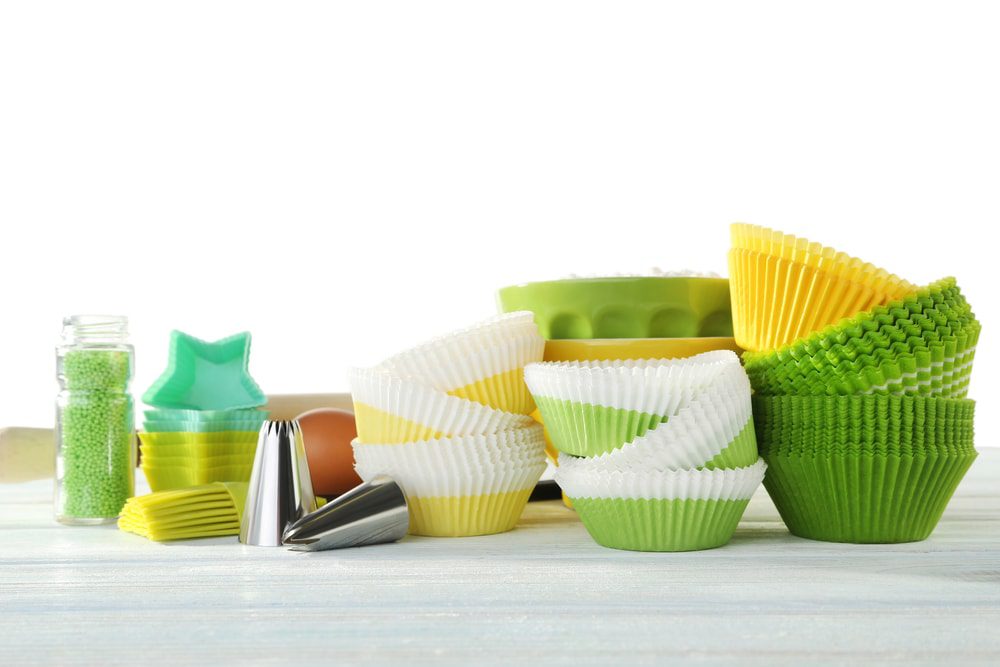Silicone cookware is considered safe and non-toxic as it is chemically stable and does not react with food or beverages. It is widely used in cosmetic and surgical implants, indicating its safety.
Despite the durability and safety of silicone, it is essential to note that it may not withstand extremely high temperatures and can melt if exposed for too long. However, compared to plastic or Teflon, silicone is generally considered safer.
Is Silicone Cookware Safe?
Silicone cookware has gained popularity in recent years due to its non-stick properties and versatility in the kitchen. However, concerns about its safety and toxicity have also emerged amidst the growing use of silicone cookware. In this article, we will address the question, “Is silicone cookware safe?” and explore the various aspects of silicone cookware that you should consider.
Silicone Safety For Food Use
Many experts and authorities consider silicone to be completely safe for food use. Health Canada, for example, states that no known health hazards are associated with using silicone cookware. According to the FDA, food-grade silicone cookware and utensils do not cause harmful chemical contamination of foods. This reassurance comes from silicone being chemically stable, meaning it does not react with food or beverages and does not produce any hazardous fumes.
Comparison To Other Materials
When comparing silicone to other materials commonly used in cookware, such as Teflon and plastic, silicone offers certain advantages. Silicone is more durable than carbon-based plastics and PFOA-based Teflon. Although widespread testing on silicone’s safety is currently lacking, it is generally considered to be safer than plastic or Teflon due to the absence of evidence linking silicone to deadly diseases like cancer.
Disadvantages Of Silicone Cookware
While silicone cookware has its benefits, it is also essential to consider its limitations. One disadvantage is that silicone doesn’t handle high temperatures well and can melt if exposed to a high temperature for an extended period. Therefore, avoiding placing silicone cookware near an open flame is essential. Additionally, while silicone bakeware can last long, it may not be as durable as other materials.
Silicone cookware is generally considered safe for food use, with authorities confirming its non-toxic nature. Compared to materials like plastic and Teflon, silicone offers durability, but there is a lack of evidence linking it to harmful diseases. However, it is essential to be mindful of its limitations and avoid exposing silicone cookware to high temperatures or flames.

Is Silicone Truly Non-toxic?
Silicone has gained popularity as a versatile material for cookware due to its flexibility, durability, and heat resistance. But is silicone truly non-toxic? Let’s explore the different aspects of silicone to understand its safety.
Toxicity Of Siloxanes In Silicone
Silicone primarily comprises silicon, oxygen, carbon, and hydrogen atoms. The potential concern arises from a group of chemicals called siloxanes, which are a byproduct of the silicone manufacturing process. Siloxanes such as D4, D5, and D6 persist in the environment and accumulate in living organisms.
However, studies have shown that the levels of siloxanes typically present in silicone cookware and utensils are well below the safety limits of regulatory authorities. The Food and Drug Administration (FDA) and Health Canada consider silicone cookware safe for use with no known health hazards.
Leaching Of Chemicals From Silicone
One concern is the potential for chemicals to leach from silicone into food during cooking or baking. However, silicone is chemically stable and does not react with food or beverages, making it unlikely to release harmful substances.
Health Canada explicitly states that no known health hazards are associated with using silicone cookware. This finding further supports the safety of silicone in food preparation.
Inertness And Reactivity Of Silicone
An essential characteristic of silicone is its inertness. It does not react with other materials or release hazardous fumes when exposed to heat or substances commonly found in the kitchen.
This inertness and lack of reactivity make silicone ideal for various food-related applications. It is commonly used in baking mats, moulds, spatulas, and kitchen tools, providing a non-stick surface and excellent heat resistance.
In conclusion, silicone cookware is considered safe and non-toxic. Its low potential for toxicity, minimal leaching of chemicals, and inertness make it a preferred choice for many cooking enthusiasts and professionals.
While there are potential disadvantages, such as limitations in handling extremely high temperatures, silicone remains a safer alternative to materials like plastic or Teflon cookware.
So, if you’re concerned about the safety of your cookware, silicone is a reliable option that offers both convenience and peace of mind in the kitchen.
Conclusion And Recommendations
Silicone cookware is generally considered safe and non-toxic. It is chemically stable and does not react with food or beverages. However, silicone may not handle extremely high temperatures well and can melt if exposed for too long. Overall, silicone is safer than plastic or Teflon cookware.
Benefits Of Silicone Cookware
There are several benefits to using silicone cookware in your kitchen. Here are a few advantages that make it a popular choice:
- Durability: Silicone cookware is known for its durability and longevity. It can withstand high temperatures without warping or melting, making it ideal for baking and cooking.
- Non-Stick Properties: Silicone has natural non-stick properties, eliminating the need for greasing or oiling pans. This makes it easier to release baked goods and reduces the amount of added fat in your recipes.
- Easy Cleaning: Silicone cookware is incredibly easy to clean. It is dishwasher-safe and can be wiped clean with a sponge or cloth. Its non-stick surface prevents food from sticking, saving you time and effort in the kitchen.
- Flexible and Versatile: Silicone moulds and bakeware are flexible, allowing for easy removal of baked goods. They are versatile and can be used in the oven, microwave, freezer, and stovetops.
Considerations For Safe Use
While silicone cookware is generally deemed safe, there are some considerations to keep in mind for safe use:
- Temperature Limits: Silicone cookware has temperature limits, so it is crucial to stay within them to prevent damage. Make sure to check the manufacturer’s guidelines for safe temperature ranges.
- Avoid Direct Flame Contact: Silicone bakeware should not be placed directly over an open flame or on a stovetop burner. Exposing silicone to high heat can cause melting or warping.
- Proper Storage: To maintain the longevity of your silicone cookware, store it away from sharp objects that could puncture or damage it. Please keep it in a cool and dry place to prevent any deterioration.
Alternative Options For Non-toxic Cooking
If you have concerns about using silicone cookware or are looking for alternative options, consider the following non-toxic cooking materials:
- Stainless Steel: Stainless steel cookware is famous for its durability and non-reactive properties. It is free from harmful chemicals and can withstand high temperatures.
- Cast Iron: Cast iron cookware is known for its excellent heat retention and distribution. It is a long-lasting option that adds trace amounts of iron to your food, which can benefit those with iron deficiencies.
- Glass: Glass cookware is non-toxic and non-reactive, making it a safe choice for cooking and baking. It is transparent, allowing you to monitor your food’s progress, and is easy to clean.
- Ceramic: Ceramic cookware is made from natural materials and does not release harmful chemicals when heated. It offers excellent heat retention and is available in various vibrant colours.
Consider these alternative options based on your preferences and needs to ensure non-toxic cooking in your kitchen.
Frequently Asked Questions: Is Silicone Cookware Safe? Is it genuinely non-toxic?
Why Are Silicones Non Toxic?
Silicones are non-toxic because they are chemically stable and do not react with food or beverages. They are considered safe for cookware and widely used in cosmetic and surgical implants. Silicone is also more durable than other plastics and Teflon, making it a safer choice for cooking.
However, silicone may not withstand extremely high temperatures and can melt if exposed for too long. Overall, silicone is a safe option for non-toxic cooking.
Does Silicone Release Toxins When Heated?
Silicone does not release toxins when heated and is considered safe for food use. Health Canada states that no known health hazards are associated with using silicone cookware. Silicone is chemically stable and does not react with food or beverages or produce hazardous fumes.
Which Is Safer Teflon Or Silicone?
Silicone is safer than Teflon because silicone does not release toxins when heated and is considered chemically stable. Unlike Teflon, silicone does not react with food or produce hazardous fumes. Additionally, silicone offers more durability compared to carbon-based plastics and Teflon.
Silicone is a safer option for non-toxic cooking.
What Are The Disadvantages Of Silicone Cookware?
Silicone cookware has a few disadvantages. It can’t handle high temperatures and may melt. It also shouldn’t be used near open flames. While it can last long, it may not be as durable as other materials.
Conclusion
Silicone cookware is generally considered safe and non-toxic for use in the kitchen. It is chemically stable and does not react with food or beverages, making it a popular food preparation and storage choice. While silicone may not withstand extremely high temperatures and can leach chemicals under certain conditions, it is still considered safer than other plastics or Teflon.
When used correctly and within recommended temperature limits, silicone cookware can provide a convenient and reliable option for non-toxic cooking.

Hi, I’m Esrat, and I’m so glad that you found me here at Happy Food Kitchen! I started Happy Food Kitchen in 2023 to have a creative, right-brained outlet to balance my very left-brained career in genetics.




